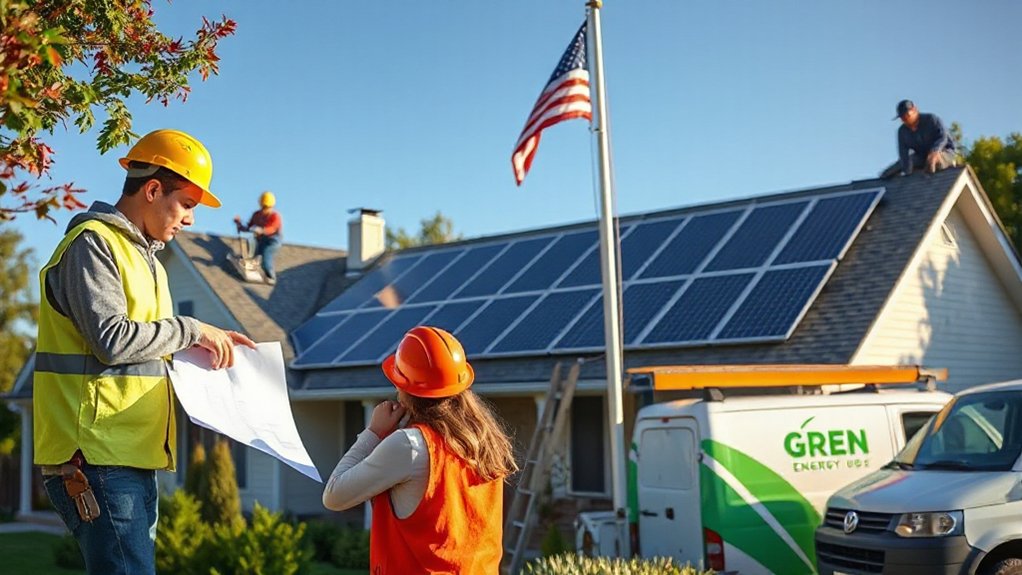As the solar industry continues its rapid growth across the United States, teenagers are finding new pathways into clean energy careers through apprenticeship programs. These eight-week or summer-long programs combine hands-on fieldwork with classroom instruction. Students earn credits toward associate degrees while gaining industry certifications in solar installation and electrical trades. In Southwest Virginia, apprentices receive hourly pay, free equipment, and transportation subsidies while training on rooftop, carport, and ground-mounted solar installations.
The Department of Labor approves these registered apprenticeships, making credentials valid nationwide. Industry needs shape what students learn, focusing on skills that solar companies need right now. The U.S. solar industry employed 279,447 workers in 2023, marking a 5.9% increase from the previous year. Gen Z workers are joining the field in growing numbers, showing youth interest in renewable energy careers. With 87% of Gen Z preferring companies that align with their values, solar apprenticeships offer a perfect match for environmentally conscious young workers.
Solar apprenticeships offer nationally recognized credentials as Gen Z increasingly pursues renewable energy careers.
These programs offer substantial benefits for participating teens. They gain real work experience and recognized certificates before or during college. Many apprentices receive job offers after completing their programs. Some regional initiatives even provide free or subsidized college tuition through scholarships. The timing couldn’t be better – employment for solar installers is expected to grow 27% between 2022 and 2032.
Apprentices learn practical skills like solar panel installation, system safety, troubleshooting, and maintenance. They also develop professional skills including teamwork and communication. Students can earn certificates in solar installation, air conditioning, refrigeration, and electrical fabrication. These credentials are recognized by employers across the country. The renewable sector typically offers 25% higher wages than median jobs, making it an attractive career path for young workers entering the job market.
The programs face some challenges. Construction schedules don’t always align with school calendars, creating unpredictable timelines. Students must balance long workdays with college coursework, requiring strong time management skills. Rural students sometimes travel far to reach training centers. Programs need steady funding and strong partnerships between schools and employers to succeed.
Despite these obstacles, solar apprenticeships create positive impacts for communities. They develop local workforces and support regional solar projects with skilled installers. As communities adopt more renewable energy, having trained technicians nearby becomes increasingly valuable.
References
- https://cardinalnews.org/2025/05/20/brighter-future-solar-apprenticeships-add-renewable-energy-skills-to-local-jobs/
- https://seia.org/blog/solar-jobs-all-five-facts-rising-solar-workforce/
- https://irecusa.org/programs/solar-jobs-census/
- https://www.rssinc.com/blog/solar-installers-in-2025-key-trends-and-staffing-insights/
- https://www.iwsiamerica.org/news/building-solar-talent-with-registered-apprenticeship-programs









